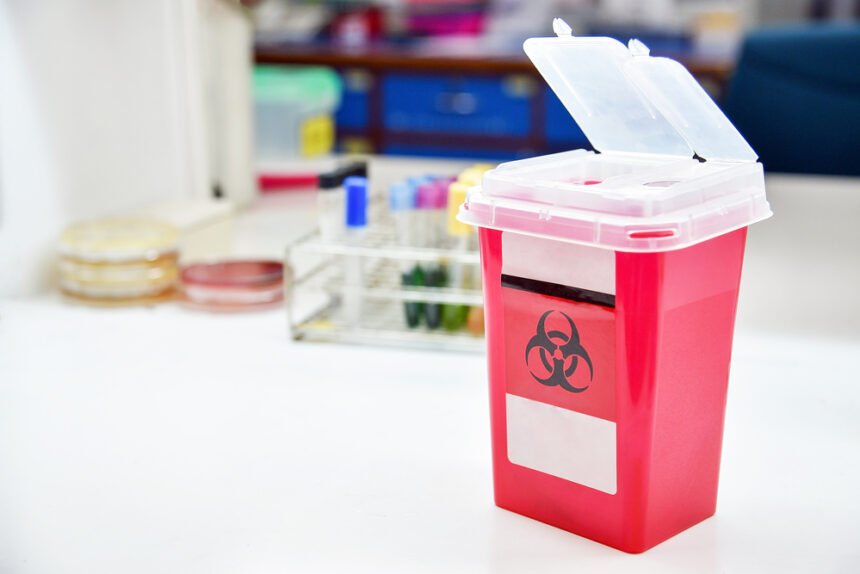Properly handling medical waste and following disposal regulations can be a significant challenge, even with robust procedures and policies in place. These challenges are amplified by the current crisis, which is beginning to put considerable strain on medical facilities and increase the amount of waste they generate. There are also federal regulations and guidance regarding COVID 19-contaminated waste that medical professionals should be aware of. Most notably, a new EPA policy has relaxed enforcement of certain environmental regulations during the outbreak. Here is how professionals should handle medical waste during the COVID-19 crisis.
What We Know About Coronavirus-Related Medical Waste
If the outbreak in America is similar to what was seen in China, hospitals and disposal companies are about to deal with a major uptick in medical waste. Wuhan, the city most impacted by the outbreak, was producing more than six times the average amount of medical waste in mid-March, pushing all facilities in the city to capacity. The increase in waste is generated by the number of patients, rather than the disease itself. It’s mostly in the form of used PPE and nontraditional waste contaminated with COVID-19. While it isn’t known right now how long COVID-19 can survive on various surfaces, current research suggests that the virus can live for up to three days on plastic and stainless steel. Medical waste, even if it is several days old, may still pose a risk of transmission if not properly disposed of. Medical waste in America hasn’t hit Wuhan levels yet, but there is evidence that it’s beginning to accelerate. Stericycle, one of the country’s largest medical waste processors, has already reported a significant increase in used PPE over the past few weeks. Advanced waste disposal technology may be an option for some health systems. Northwell Health recently adopted a medical waste disposal platform, the Envetec 200, that simultaneously shreds and sanitizes it, producing regular trash.
Legal Guidelines Medical Professionals Need to Follow
Certain federal agencies have published more specific guidance on how medical facilities should handle waste contaminated with COVID-19. PPE should be used when handling it whenever possible to minimize the risk of transmission. Typically, medical facilities that generate hazardous waste need to ship it off-site within a certain timeframe to maintain Resource Conservation and Recovery Act (RCRA) generator status. Toward the end of March, however, the EPA announced that the agency would be temporarily exercising enforcement discretion regarding environmental legal obligations during the panic. As of March 13, 2020, if compliance is not “reasonably practical,” generators will be able to keep hazardous waste on-site without losing their generator status and being reclassified as a treatment, storage and disposal facility. However, it must be properly labeled and stored. Generators will also need to note the nature and date of each specific noncompliance, as well as describe how COVID-19 was the cause. Generators classified as a Very Small Quantity Generator or Small Quantity Generator that produce and store hazardous waste in excessive volumes will still retain their status. However, this is only as long as compliance is not reasonably practical, and instances of noncompliance are properly documented.
Guidelines and Best Practices for Handling Coronavirus-Related Medical Waste
If the outbreak in America follows trends seen in China, U.S medical facilities will soon face a surge in coronavirus-contaminated medical waste. Federal agencies, in response, have issued special guidance and — in the case of the EPA — relaxed some regulations around the storage and handling of it. The changes are likely good news for medical facilities worried about losing generator status. However, it’s not clear if they will be enough to help health care centers handling the growing medical waste problem.








